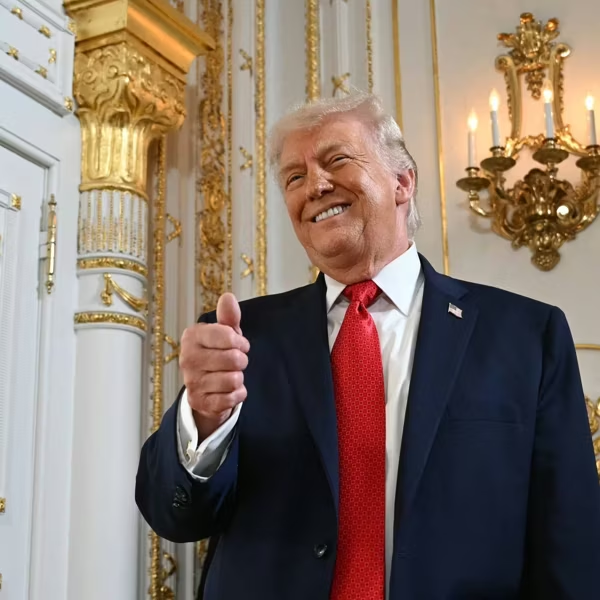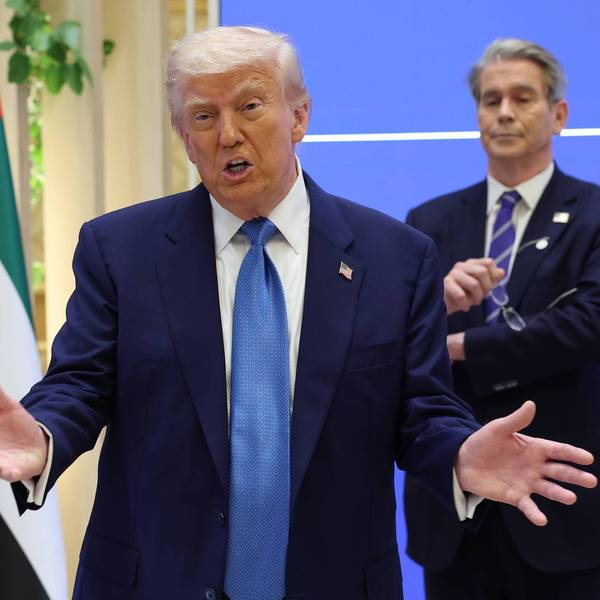As many suspected, President-elect Donald Trump's web of business conflicts is much more complicated than he has let on.
An analysis by the Wall Street Journal published Thursday found that the incoming president owes at least $1.85 billion in debt to as many as 150 Wall Street firms and other financial institutions.
According to the examination of legal and property documents, "Hundreds of millions of dollars of debt attached to Mr. Trump's properties, some of them backed by Mr. Trump's personal guarantee, were packaged into securities and sold to investors over the past five years," thus "broadening the tangle of interests that pose potential conflicts for the incoming president's administration."
In May, Trump filed documents with the Federal Election Commission (FEC) that disclosed $315 million owed to 10 companies--but that only included debts for companies that Trump completely controls, "excluding more than $1.5 billion lent to partnerships that are 30 percent owned by him," WSJ reported.
"As a result," wrote WSJ reporters Jean Eaglesham and Lisa Schwartz, "a broader array of financial institutions now are in a potentially powerful position over the incoming president."
Put more directly, as Think Progress's Judd Legum did: "As president, Trump will be responsible for regulating entities that he also owes money to."
In one troubling example, the investigation found that Wells Fargo, currently under investigation for a years-long banking fraud scandal, "runs at least five mutual funds that own portions of Trump businesses' securitized debt;" is "a trustee or administrator for pools of securitized loans that include $282 million of loans to Mr. Trump;" and "acts as a special servicer for $950 million of loans to a property that one of Mr. Trump's companies partly owns."
"Once he takes office," Eaglesham and Schwartz observed, "Mr. Trump will appoint the heads of many of the regulators that police the bank."
The spread of Trump's debt can in large part be attributed to the process known as "securitization," when debt is repackaged into bonds and sold off. More than $1 billion of debt connected to the president-elect has been handled in this way.
While concerns over Trump's conflicts of interest continue to mount, the president-elect has thus far failed to address the issue. Despite warnings from ethics attorneys, he has refused to divest his business holdings, though there were reports that he would hand the reins of the real estate empire over to his sons and advisors, Donald Jr. and Eric. At the same time, a December press conference was postponed and is now scheduled for Jan. 11--the same day as some of his more controversial appointees' confirmation hearings.



